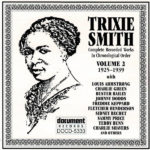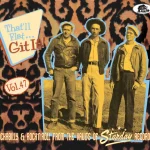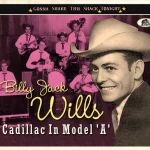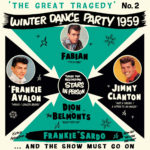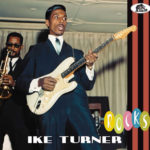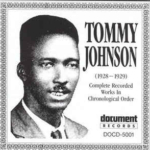Trixie Smith – Vol 2 1925 – 1939
DOCD-5333
Everybody loves my baby (take 6) – How come you do me like you do? (take 6) – You’ve got to beat me to keep me – Mining camp blues (take 1) – Mining camp blues (take 2) – The worlds jazz crazy and so am I (take 1) – The worlds jazz crazy and so am I (take 2) – Railroad blues (take 1) – Railroad blues (take 2) – Everybodys doing that Charleston now (take 1) – He likes it slow (take 2) – Black bottom hop – Love me like you used to do – Messinaround (take 1) – Messin around (take 2) – Freight train blues – Trixie blues – My daddy rocks me – My daddy rocks me no. 2 – He may be your man (but he comes to see me sometime) – Jack I`m mellow – My unusual man – No good man
The first two tracks, recorded in January 1925, feature Phil Napoleon on trumpet, Miff Mole on trombone, Jimmy Lytell on clarinet, Frank Signorelli on piano, and Jack Roth on drums. The result is two lively versions of “Everybody Loves My Baby” and “How Come You Do Me Like You Do.”
The following month she recorded the next session with a new lineup of her Down Home Syncopators, which included Charlie Dixon on banjo, Fletcher Henderson on piano, Buster Bailey on clarinet, Charlie Green on trombone, and Louis Armstrong on cornet.
This session and the next one (March 1925) with the same backing band are more in a blues vein. Next to Mining Camp Blues, Railroad Blues, and The World’s Jazz Crazy And So Am I, you’ll find the unsettling and masochistic “You’ve Got To Beat Me To Keep Me.” Written by Porter Grainger, composer of the blues standard “T’ain’t Nobody’s Business If I Do” it features disturbing lyrics like “You’ve got to beat me to keep me, ’cause Mama loves a hard-boiled man / So don’t you let no man cheat me if he’s got a good right hand. / Beat me up for breakfast, knock me down for tea, / Black my eye for supper, then you’re pleasing me. / You’ve got to beat me to keep me cause Mama loves a hard-boiled man. / Mama don’t want no diamond rings, and she don’t want no swell clothes / Wail me daddy til it stings across my mouth and nose. / I don’t want no hug and kiss, / I don’t want no love and smile, / Beat me with your hand or fist, Papa like I was your child.” As you can see, it’s not your average “I woke up this morning, and you left me” kind of blues.
At the end of the year, she collaborated with Fletcher Henderson’s Orchestra to record four songs. These includes the lively “Everybody’s Doing That Charleston Now” and the excellent “He Likes It Slow.” Other tracks from the session were “Black Bottom Hop” and “Love Me Like You Used To Do,” which is quite similar to “Baby Won’t You Please Come Home.”
The song “Messin’ Around” was recorded in July 1926 with Johnny Blythe and his Raggamuffins. This lively and joyful number showcased Trixie Smith’s vocals and featured a top-notch band including Freddie Keppard and Johnny Dodds.
After a twelve-year hiatus, Smith returned to the studio in 1938, backed by Sidney Bechet, Sammy Price, O’Neil Spencer, and Teddy Bunn, among others. Better recorded and preserved, this session allows listeners to clearly hear Smith’s fantastic voice (and elocution) and one can regret she stayed far from the studios for so long. The material contains new versions of songs she recorded decades earlier (see Volume 1) and ranges from blues (Freight Train Blues, Trixie Blues) to swing (Jack I’m Mellow) and featured high-class performances from the band (Teddy Bunn’s guitar chorus on “Trixie Blues” is worth mentioning). In 1939, she recorded “No Good Man” with Sid Catlett, Red Allen, and Barney Bigard before disappearing and passing away four years later.
Available here.
Fred “Virgil” Turgis
